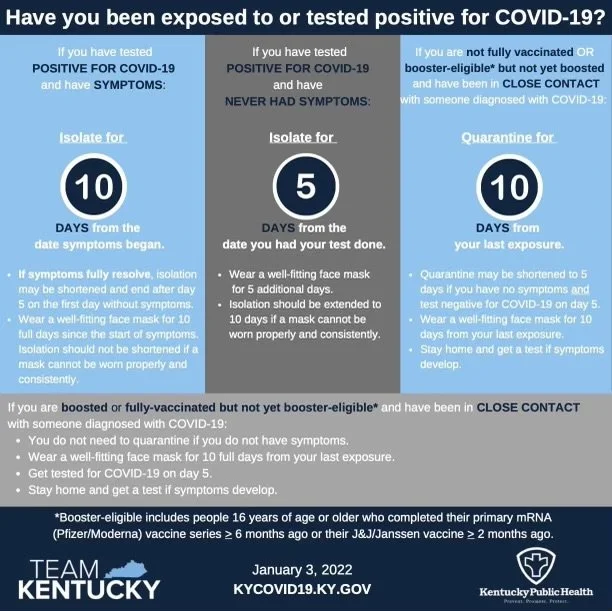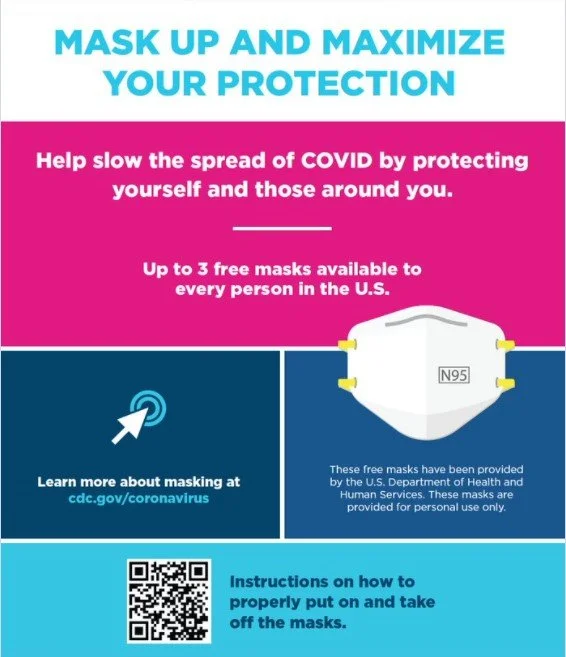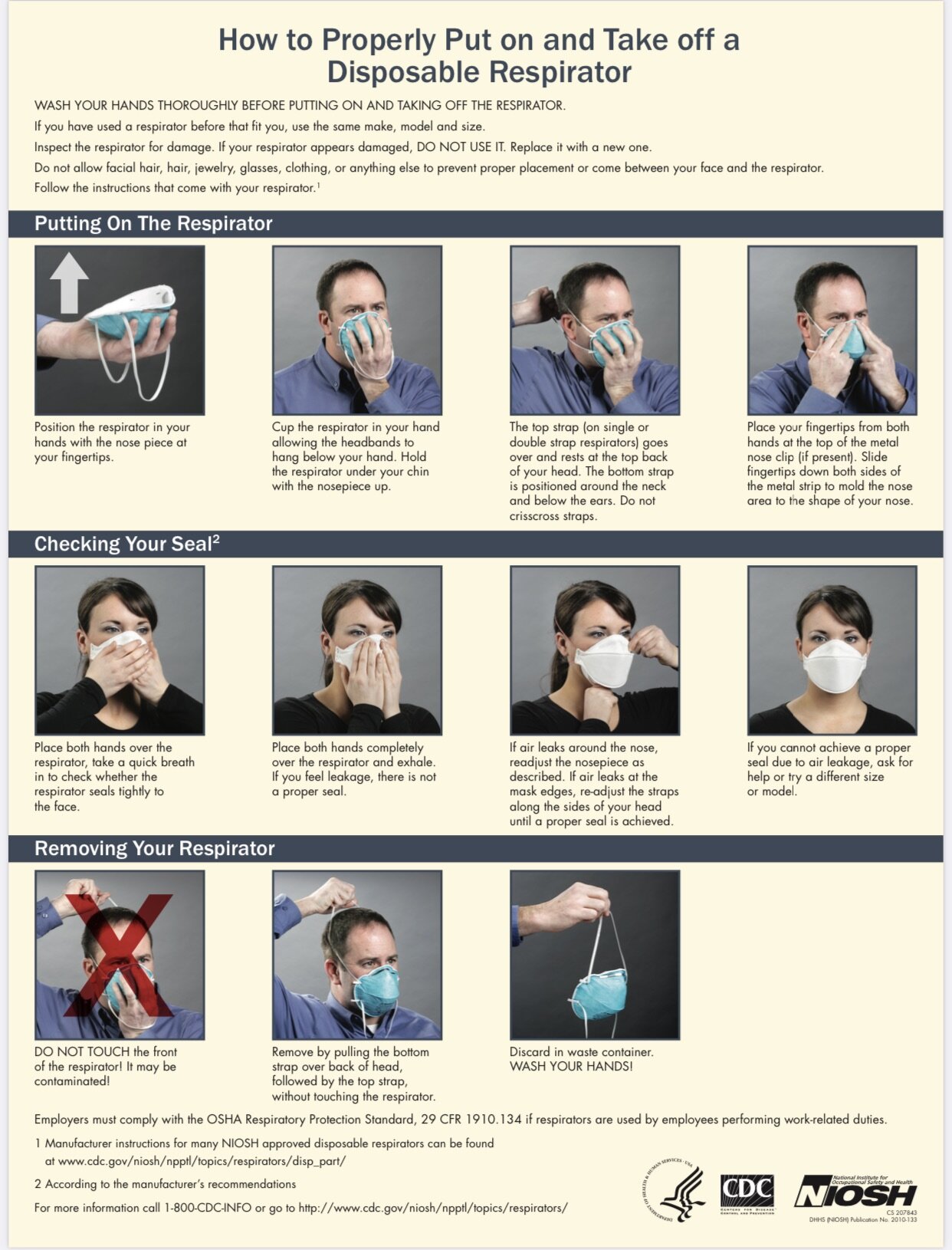COVID-19 Updates 1/26/22
As the Omicron variant ramps up we want to provide you with some much needed information on not only how to protect yourself but keep friends and family safe as well. Here you will find information on the current quarantine periods, where to get free COVID tests, and free masks along with how to properly wear and remove them. We want you to be safe and do your part to help stop the spread.
Quarantine:
Given what we currently know about COVID-19 and the Omicron variant, CDC is shortening the recommended time for isolation for the public. See the detailed chart below for the current recommendations.
Masks:
As you have read in the previous image a well fitted mask is recommended for anyone who has tested positive, been exposed, or is unvaccinated. The CDC is now recommending highly protective N95 masks to combat surging cases. So, which ones are best and where can you get them for free?
The CDC doesn’t explicitly recommend N95s, other than suggesting that you wear the most protective mask you can that fits well and that you will wear consistently. However, it says that N95s offer the “highest level of protection,” followed by similar respirator masks like the KN95 and KF94 or well-fitting disposable surgical masks, which the CDC says are better than cloth masks, which offer the “least protection.”
Participating pharmacies will begin getting shipments as early as next week. They include Meijer, Kroger, CVS, and Walgreens. Community health centers are expected to distribute masks too, but on a smaller scale.
Customers will be limited to 3 free masks per person.
Tests:
Get your free at-home COVID-19 tests. Every home in the U.S. is eligible to order (4) free at-home COVID-19 tests. The tests are completely free and will usually ship in 7-12 days.
Health insurers must cover the cost of home Covid-19 tests starting January 15, as announced by the US Department of Health and Human Services.
The new requirement means that most consumers with private health insurance can buy at-home tests online or in stores and have them paid for at the time of purchase or get reimbursed by submitting a claim to their insurer.
Consumers will not need to visit their doctor or get a prescription to obtain the free tests, the department said. And the tests won't be subject to copays or deductibles.
Insurers must pay for up to eight tests per covered individual per month. But there won't be any limit if a doctor orders or administers them after an office visit.
Insurers may set up a network of preferred stores, pharmacies and online retailers, where consumers can receive tests at no cost up front. People could still buy tests outside that network, but insurers would only have to reimburse up to $12 for each one.
The requirement is not retroactive, so at-home tests purchased before January 15 do not qualify for reimbursement.




